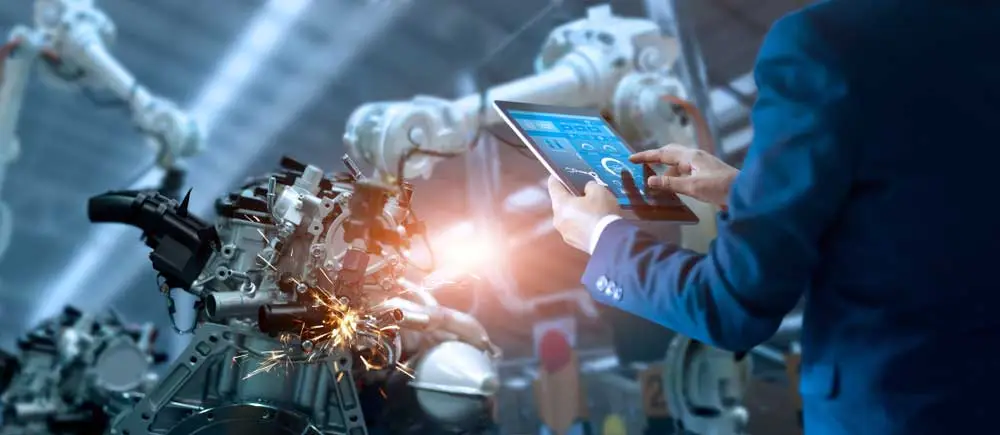
Advanced Manufacturing
Overview
In simple words, advanced manufacturing is the integration of innovative technology and cutting-edge processes to amplify the overall efficiency, productivity, and quality of manufacturing. It aims to optimise production, minimise waste, and eventually drive economic growth.
Objectives
- Process Optimisation
- Digital Integration
- Understanding Advanced Technologies
- Materials Science
- Problem-Solving Skills
- An overview of modern manufacturing processes
- Learn cost-effective processes to make things
- Provide insights for forecasting
Prerequisites
- Basic Engineering Principles
- Mathematics Proficiency
- Computer-Aided Design proficiency
- Introductory Manufacturing Processes
Curriculum Outline
- Introduction to Advanced Manufacturing
- Manufacturing Processes
- Materials Science for Manufacturing
- Automation and Robotics
- Digital Manufacturing and Industry 4.0
- Quality Assurance and Control
- Supply Chain Management
- CAD/CAM and Simulation
- Sustainable Manufacturing Practices
- Capstone Project
- Advanced Topics in Additive Manufacturing
- Human Factors in Manufacturing
- Manufacturing for Emerging Technologies
Teaching Method
- Lectures
- Hands-On Labs
- Project-Based Learning
- Case Studies
- Guest Lectures
- Simulation Software
- Field Trips and Industry Visits
- Group Discussions and Workshops
- Online Learning Platforms
- Assessment and Feedback
Modules
- Advanced manufacturing methods
- Properties of materials used in manufacturing
- Introduction to Advanced Manufacturing
- CAD/CAM/CAE
- Rapid tooling
- 3D printing
- Casting
- Laser manufacturing technology
- Laser micro-machining technology
- Turbomachinery manufacturing technologies
- Introduction to Advanced Manufacturing
- Manufacturing Processes
- Materials Science and Engineering
Assessment Methods
- Exams and Quizzes
- Laboratory Work
- Project-Based Assessments
- Case Study Analysis
- Assignments and Homework
- Participation and Engagement
- Online Assessments
Course Duration
The course duration may vary by institution and location. In the UK, full-time study can take about 3 to 4 years, and part-time can take about 4 to 6 years.
Facilities
- Laboratories
- Computer-aided Design (CAD) Suites
- Robotics and Automation Labs
- Simulation and Virtual Reality Facilities
- Quality Control and Inspection Facilities
- Collaboration Spaces
- Lecture and Seminar Rooms
- Resource Centres
- Industry Partnership Facilities
- Welding and Fabrication Lab/Flex Lab
- PLC Lab
Career Pathways
- Manufacturing Engineer
- Production Manager
- Quality Assurance Engineer
- Industrial Engineer
- Additive Manufacturing Specialist
- Robotics Engineer
- Supply Chain Analyst/Manager
- CAD Technician/Designer
- Research and Development Engineer
- Process Improvement Consultant
- Technical Sales Engineer
- Project Manager
- Operations Analyst
- Sustainability Consultant
Fees and Fundings
The fees depend on the institute and location. However, in the UK, the tuition fees for international students can lie between £15,000 and £30,000 per year for undergraduate programmes and from £15,000 to £35,000 for the entire postgraduate course.
Entry Requirements
- A-Levels or Bachelor’s
- GCSEs
- Personal Statement
- References
- Interview
- Work Experience
- English Language Proficiency
Field Work and Internships
- Industry Visits
- Hands-On Projects
- Collaborative Research
- Workshops and Seminars
- Summer Internships
- Industry Sponsorships
- Mentorship Opportunities
Certifications
- Six Sigma Certification
- Lean Manufacturing Certification
- Certified Manufacturing Engineer (CMfgE)
- Certified Quality Engineer (CQE)
- Project Management Professional
- CAD Software Certifications
- Additive Manufacturing Certification
Intakes
In the UK, the primary intake happens in September/October, and the secondary intake happens in January/February.
Student Testimony
I chose the Advanced Manufacturing programme because it offers a wide range of courses that reflected my own interests and vision for my future professional life. This flexibility allowed me to explore different facets of modern manufacturing.
The most unique and valuable aspect of my experience was…. [Chintan Malani from Chemnitz University of Technology]
Frequently asked questions
The goal of advanced manufacturing is to increase an organisation's productivity by improving its flexibility and product customisation capabilities.

